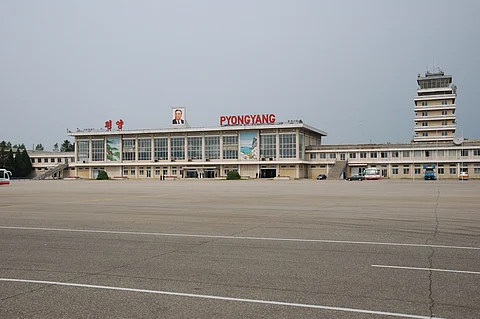

Russia and North Korea launched their first direct flight route on Sunday, signaling a further deepening of bilateral ties as the two countries continue to solidify their newly formed military and strategic partnership.
The inaugural Moscow–Pyongyang flight departed from Sheremetyevo International Airport at 16:00 GMT, with an estimated travel time of eight hours. Operated by Nordwind Airlines, a Russian carrier previously focused on European leisure destinations prior to EU sanctions, the route utilizes a Boeing 777-200ER with a passenger capacity of 440.
Initially scheduled to operate once a month, tickets for the flight were priced at 45,000 rubles (approximately $570). Russian state media reported that the flight was sold out, highlighting unexpectedly strong demand. The first return flight from Pyongyang to Moscow is scheduled for Tuesday.
The resumption of air links comes in the wake of a Treaty on Comprehensive Strategic Partnership signed last year between Moscow and Pyongyang, which formalized military cooperation and alliance. Under this agreement, North Korean troops participated in combat operations in Russia’s Kursk region during efforts to reclaim territory from Ukrainian forces.
The direct flights are part of broader efforts to strengthen logistical and economic ties. On June 17th, the Khasan–Tumen rail line connecting Russia and North Korea was also restored after a four-year hiatus due to COVID-19 restrictions. The rail line, which takes about 10 days for a round trip between Moscow and Pyongyang, is being used to transport Russian coal, fertilizer, and iron ore into North Korea. In return, North Korea exports seafood, rare earth metals, and—according to Western officials—military equipment and supplies.
The revival of these transport links and the growing volume of bilateral trade mark a significant strategic shift in East Asia. As both countries remain under heavy Western sanctions, their cooperation has allowed North Korea to begin emerging from over three decades of economic isolation. Meanwhile, Russia has publicly declared it will defend North Korea in the event of external aggression, further cementing their alliance and raising concerns in neighboring countries and Western capitals.